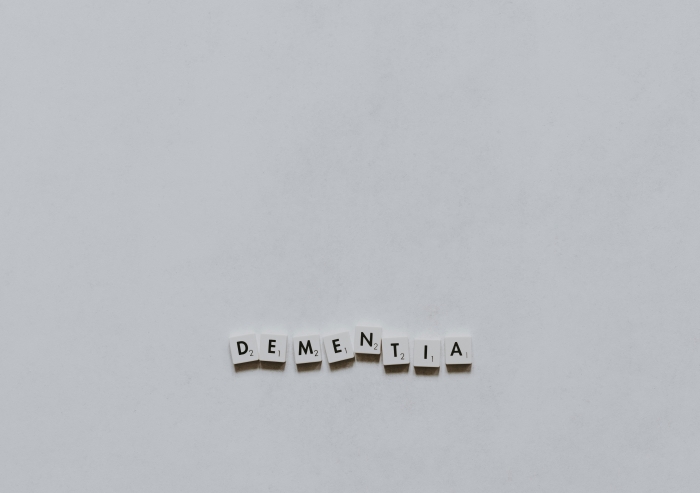Menopause is a point in time 12 months after a woman's last period. The years leading up to that point, when women may have changes in their monthly cycles, hot flashes, or other symptoms, are called the menopausal transition or perimenopause.
The menopausal transition most often begins between ages 45 and 55. It usually lasts about seven years but can be as long as 14 years. The duration can depend on lifestyle factors such as smoking, age it begins, and race and ethnicity. During perimenopause, the body's production of estrogen and progesterone, two hormones made by the ovaries, varies greatly.
The menopausal transition affects each woman uniquely and in various ways. The body begins to use energy differently, fat cells change, and women may gain weight more easily. You may experience changes in your bone or heart health, your body shape and composition, or your physical function.
Is it menopause?
If you are having symptoms that are common during menopause, your doctor may ask questions about your age, symptoms, and family history to determine if it really is the menopausal transition causing your problems. In some cases, your doctor may suggest a blood test to check your follicle-stimulating hormone (FSH) and estradiol (E2) levels to rule out any other causes for the changes you're experiencing.
While the menopausal transition may commonly be referred to as "menopause," true menopause doesn't happen until one year after a woman’s final menstrual period. For that reason, a woman who does not want to get pregnant should continue to use birth control for at least a full 12 months after her last period.
Menopause can also be triggered by a hysterectomy or surgical removal of the ovaries, which produce hormones. If you have surgery to remove your uterus or ovaries and are not taking hormones, you will experience symptoms of menopause immediately.
After menopause, women enter post menopause. Postmenopausal women are more vulnerable to heart disease and osteoporosis. During this time, it is important to continue to eat a healthy diet, be active, and make sure you get enough calcium for optimal bone health.
What are the signs and symptoms of menopause?
Estrogen is used by many parts of a woman’s body. As levels of estrogen decrease, you could have various symptoms. Many women experience mild symptoms that can be treated by lifestyle changes such as avoiding caffeine or carrying a portable fan. Some women don’t require any treatment at all, but for others, symptoms can be more severe. The severity of symptoms varies greatly around the world and by race and ethnicity.
Here are the most common changes you might notice at midlife. Some may be part of aging rather than directly related to menopause.
Hot flashes
Many women have hot flashes, which can last for many years after menopause. They may be related to changing estrogen levels. A hot flash is a sudden feeling of heat in the upper part or all of your body. Your face and neck may become flushed. Red blotches may appear on your chest, back, and arms. Heavy sweating and cold shivering can follow. Hot flashes can be very mild or strong enough to wake you up (called night sweats). Most hot flashes last between 30 seconds and 10 minutes. They can happen several times an hour, a few times a day, or just once or twice a week.
Bladder control
A loss of bladder control is called incontinence. You may have a sudden urge to urinate, or urine may leak during exercise, sneezing, or laughing. The first step in treating incontinence is to see a doctor. Bladder infections also can occur in midlife.
Sleep
Around midlife, some women start having trouble getting a good night’s sleep. Maybe you can’t fall asleep easily, or you wake too early. Night sweats might wake you up. And if you wake up during the night, you might have trouble falling back to sleep.
Mood changes
You might feel moodier or more irritable around the time of menopause. Scientists don’t know why this happens. It’s possible that stress, family changes such as growing children or aging parents, a history of depression, or feeling tired could be causing these mood changes. Talk with your primary care provider or a mental health professional about what you’re experiencing. There are treatments available to help.
Your body seems different
Your waist could get larger. You could lose muscle and gain fat. Your skin could become thinner. You might have memory problems, and your joints and muscles could feel stiff and achy. Researchers are exploring such changes and how they relate to hormones and growing older.
In addition, for some women, symptoms may include aches and pains, headaches, and heart palpitations. Follow up with a doctor. Because menopausal symptoms may be caused by changing hormone levels, it is unpredictable how often women will experience symptoms and how severe they will be.
Treating menopause symptoms: What's right for me?
Deciding whether and how to treat the symptoms of menopausal transition can be complicated and personal. Discuss your symptoms, family and medical history, and preferences with your doctor. No matter what you decide, see your doctor every year to talk about your treatment plan and discuss any changes you want to make.
Source:Adapted from: https://www.nia.nih.gov/








